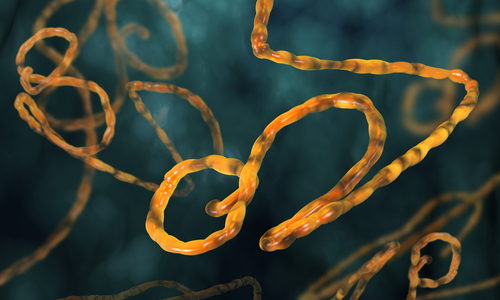
The Democratic Republic of the Congo (DRC) Ministry of Health declared this week that an Ebola outbreak which has ravaged the eastern portion of the country since 2018 has finally reached its end.
The news was hailed by global and U.S. health officials, still themselves battling the worldwide pandemic COVID-19. In a statement, U.S. Department of Health and Human Services Secretary Alex Azar congratulated the Congolese government and partners for their victory while touting America’s role in the fight.
“Above all, the victory is a credit to the heroic Congolese healthcare workers and community members on the ground, some of whom I had the chance to meet and thank in person this past fall,” Azar said. “The United States provided more support for the Ebola response than any other nation and pushed for focusing international actors’ attention on the outbreak. We invested in the DRC’s public health capabilities for years and supported experimental therapeutics and a now-FDA-approved vaccine. The new Ebola outbreak in western DRC is a reminder that we must stay vigilant against this virus and all infectious threats that can cross borders.”
The United States has provided nearly $600 million to combat Ebola in the DRC since August 2018. HHS itself has played no small role in this, supporting the development and deployment of medical countermeasures to prevent, treat, and test for the virus in the DRC and neighboring countries.
HHS, through the Assistant Secretary for Preparedness and Response, spent around $192.4 million on the development of three therapeutics, two vaccines, and one rapid diagnostic Ebola test by the end of fiscal year 2019, and made products in the DRC available under compassionate use, clinical trial or randomized clinical trial. The Food and Drug Administration supplemented these efforts with approximately $8 million in support of the Ebola outbreak response over the same period, using it to help move potential medical products more quickly to development, encouraging access to medical countermeasures and clamping down on unsafe or ineffective products.
Other assistance came from the National Institutes of Health, which spent around $21 million to conduct a randomized, controlled clinical trial of four investigational Ebola therapeutics. With 681 people enrolled, it found that mAb114 and REGN-EB3 provided patients with increased chances of survival compared to ZMapp. The Centers for Disease Control and Prevention also had a role to play, obligating approximately $36.7 million in direct support. It provided public health response expertise and more than 400 staff to assist preparedness and response efforts.
The Ebola outbreak was the 10th in DRC’s history, and the second-largest the world has ever seen. According to the World Health Organization, 3,470 people were infected, leading to 2,287 deaths. However, 1,171 people survived the disease.
“The world is now better-equipped to respond to Ebola,” WHO Director-General Dr. Tedros Adhanom Ghebreyesus said. “A vaccine has been licensed and effective treatments identified. We should celebrate this moment, but we must resist complacency. Viruses do not take breaks. Ultimately, the best defence against any outbreak is investing in a stronger health system as the foundation for universal health coverage.”




